Virtual events have skyrocketed in prevalence and popularity, and it doesn't look like that will slow down anytime soon.
According to Kaltura, 92% of organizers shifted to virtual events in 2021, and 94% plan to do so in 2022. Similarly, 48% of organizers plan to increase the number of virtual events they host.
Anyone can host a virtual event but it takes a skilled brand to host a virtual event that is memorable, meaningful, educational, and engaging.
We feel lucky to know someone who is an expert at doing that: Mike Allton.
Mike is an award-winning blogger, speaker, and author at The Social Media Hat, and Head of Strategic Partnerships at Agorapulse where he strengthens relationships with social media educators, influencers, and partner brands. He is the producer and showrunner for the marketing agency podcast, Agency Accelerated. Allton is also the co-author of The Ultimate Guide to Social Media Marketing alongside Jenn Herman, Stephanie Liu, Amanda Robinson, and Eric Butow, available wherever books are sold.
 As the Head of Strategic Partnerships at Agorapulse, Mike has a lot of experience bringing people together in a virtual way. In fact, Agorapulse has hosted upwards of 6 virtual events in the last few years such as the Social Pulse Summit and Agency Summit.
As the Head of Strategic Partnerships at Agorapulse, Mike has a lot of experience bringing people together in a virtual way. In fact, Agorapulse has hosted upwards of 6 virtual events in the last few years such as the Social Pulse Summit and Agency Summit.
Both Mike as an individual and Agorapulse as a brand understand the art of creating community and building relationships. It’s one of the reasons why they have been so successful at driving strong levels of awareness and engagement for their online events.
What Makes For Great Events:
Much like an in-person event, a good virtual event leaves people feeling connected, informed, and engaged.
There are some things that, regardless of whether the event is virtual or not, are crucial to have at an event:
- A welcoming community
- Breaks for people to be able to grab a snack, water, or run to the bathroom
- Informative and educational sessions
- Engaging speakers
- Networking opportunities
- Timely
That said, understanding the virtual format and the nuances that make it different from in-person events is critical to keeping attendees engaged.
How To Make An Engaging Virtual Event:
There are so many components that go into making an engaging virtual event.
 Start With Goals:
Start With Goals:
If you want to make an engaging event, it’s important to start from the top and think strategically about your goals.
Why are you putting on this event? What do you want to accomplish? What does success look like?
Thinking strategically is critical given that there are so many moving pieces and parts to an online event from speaker management to asset creation to scheduling.
Lay Out Expectations:
Giving attendees information about how the event will run and how they can engage beforehand is hugely helpful to fostering engagement.
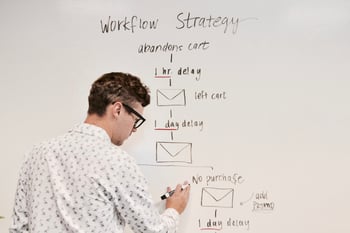 A few ideas? >> Send out a detailed email a week before the event; post a detailed message in a Facebook group for event attendees and/or have some sort of online guide that teaches people exactly what to expect so they understand how to participate.
A few ideas? >> Send out a detailed email a week before the event; post a detailed message in a Facebook group for event attendees and/or have some sort of online guide that teaches people exactly what to expect so they understand how to participate.
You can’t expect people to get engaged if they’re using a brand new platform for the first time!
Focus On Experience:
It’s critical for event organizers to get into the mindset of the attendee to understand how they will feel during the event.
In order to create a memorable experience, we have to think through the entire event itself.
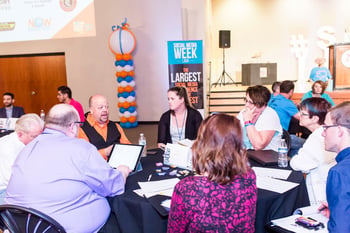
It’s important to understand your audience’s behavior so that you can figure out what their needs will be at certain times of the event.
For instance, you don’t want to spread your virtual event out over a long period of time. That’s a sure-fire way to create a forgettable event with an unengaged audience.
The focus should be on creating the best experience possible for the attendee; making it seamless, fun, engaging, and interactive.
Foster Relationship-Building:
We all know that the best part of in-person events is meeting people with who you can resonate because of your shared interests, experiences, expertise, and/or stories.
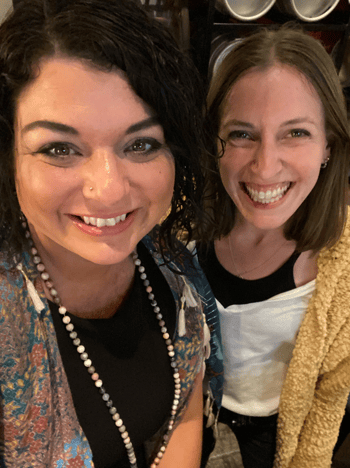 Heck, our brand manager (hi, that’s me, Julia, writing this post!) met Jessika at an event! That’s how they connected and years later, she joined the team to fill a very specific role that happened to match her skill set perfectly.
Heck, our brand manager (hi, that’s me, Julia, writing this post!) met Jessika at an event! That’s how they connected and years later, she joined the team to fill a very specific role that happened to match her skill set perfectly.
There’s no way to know where the connections created at your event will lead.
It could be months or even years later, but what happens is that people look back at your event as the moment where they met and connected, and there is an amazing association formed in their mind between your brand and that relationship because you were the facilitator for it.
The connections made are what make events memorable. The relationships we create are why we go to events and why we remember them so fondly.
As an event organizer, you want to go beyond the content so that you can bring in the connections.
Where do these connections occur? >> In the space. In between sessions, at tables, and during breaks.
“My biggest tip for any virtual event organizer is to build in space for connections to take place.” @mike_allton (click to tweet)
A great idea? >> Do a speed networking session to kick off your event for 30 minutes, where attendees are put into virtual rooms where they are paired with another attendee and given 5 minutes to talk before being randomly paired with the next person.
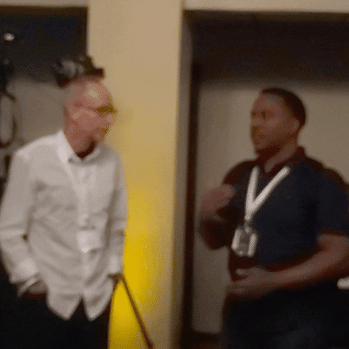 You can make it easy for attendees by pre-filling basic questions and prompts for people to ask and answer. This way, when people are in the sessions and see people commenting, they have the chance to “spot a familiar face” aka to recognize someone’s name and feel that sense of “knowing.”
You can make it easy for attendees by pre-filling basic questions and prompts for people to ask and answer. This way, when people are in the sessions and see people commenting, they have the chance to “spot a familiar face” aka to recognize someone’s name and feel that sense of “knowing.”
That makes people a little more comfortable to get engaged in the chat and ask questions.
Build The Agenda:
Using your knowledge of great events and human behavior is what lets you put together a strong event agenda that is clear and straightforward for attendees.
Kicking off the event with a networking session will encourage connections to be created.
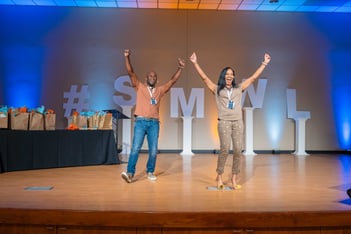 Not to mention, you want to create a strong experience from the start, so consider having someone there to greet your attendees virtually and perhaps play an informative video about the event and speakers to walk them through what they are about to experience.
Not to mention, you want to create a strong experience from the start, so consider having someone there to greet your attendees virtually and perhaps play an informative video about the event and speakers to walk them through what they are about to experience.
Research found that the most successful events have a single track; you don’t want to let people go off and do separate things at once. Rather, have one session playing at one time.
Also consider that at virtual events, people aren’t “meeting in the bathroom,” so building in networking sessions into your agenda is crucial.
Breaks are important but they need to be scheduled in accordance with actual networking sessions.
By scheduling in specific space and time for networking at your virtual event, you create an environment where relationships can truly be built.
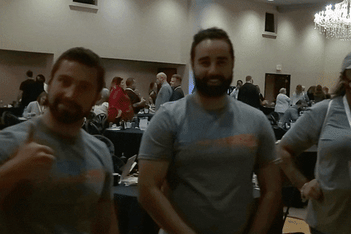 The ideal agenda? >> Networking, specific sessions, break, sessions, then some more networking.
The ideal agenda? >> Networking, specific sessions, break, sessions, then some more networking.
This creates a shared experience for everyone.
Make It Interactive:
The more you can allow for interactivity in sessions, the more engaging your event will be.
Having a live chat feature where attendees can leave reactions and ask questions in real-time is an amazing way to create a reason for people to engage with the brand AND speaker.
This interactivity is what will make people feel seen and heard which will make them feel welcomed and want to come back for the next day and/or event you host.
Ask For Help:
One of the most important things for individuals and brands new to event organizing is to not be afraid to ask for help.
Ask some of your questions to someone who has organized events before to get insight into the process if you’ve never organized one before.
Event planning is a LOT of work! (And you learn more with every single event you host.)
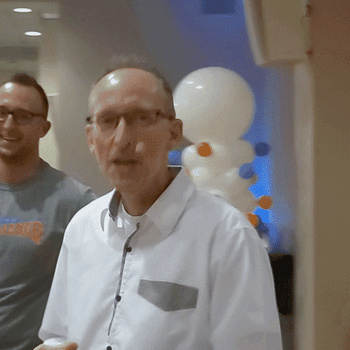 Give yourself time to plan it. Don’t decide to put together an event next week or even next month; plan out months, or even years, ahead of time!
Give yourself time to plan it. Don’t decide to put together an event next week or even next month; plan out months, or even years, ahead of time!
It’s important to be super detail-oriented and have the event-organizer mentality that understands hiccups are an inevitable part of the process.
Your job as the event organizer? Well, one of your many jobs? >> Staying cool and calm under pressure.
You don’t want the audience to know about the inevitable technical blips that will happen along the way. Stay calm and just stay focused on making sure everyone is having a good time.
Putting It All Together:
At the end of the day, it’s all about the attendee and the experience you're creating for them.
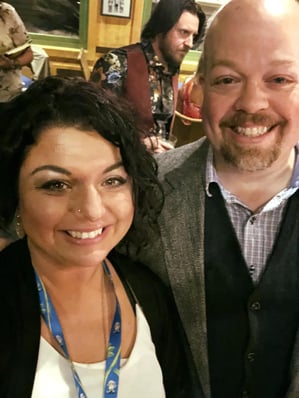
People are going to end up engaging with your event when you make it all about the relationships created and the value being provided.
When you create an environment where people can learn from experts, connect to passionate like-minded professionals and do it from the comfort of their own homes, you’ve created something truly special.
Mike is so knowledgeable when it comes to creating events and community, so be sure to visit his website and connect to him on Twitter.
He just published an incredible blog post about how to create highly engaging and memorable virtual events, as well as a post sharing a ton of statistics that are shaping the industry. (We told you, this guy knows his stuff!)
What do you think about virtual events? We’d love to hear your thoughts and best practices!

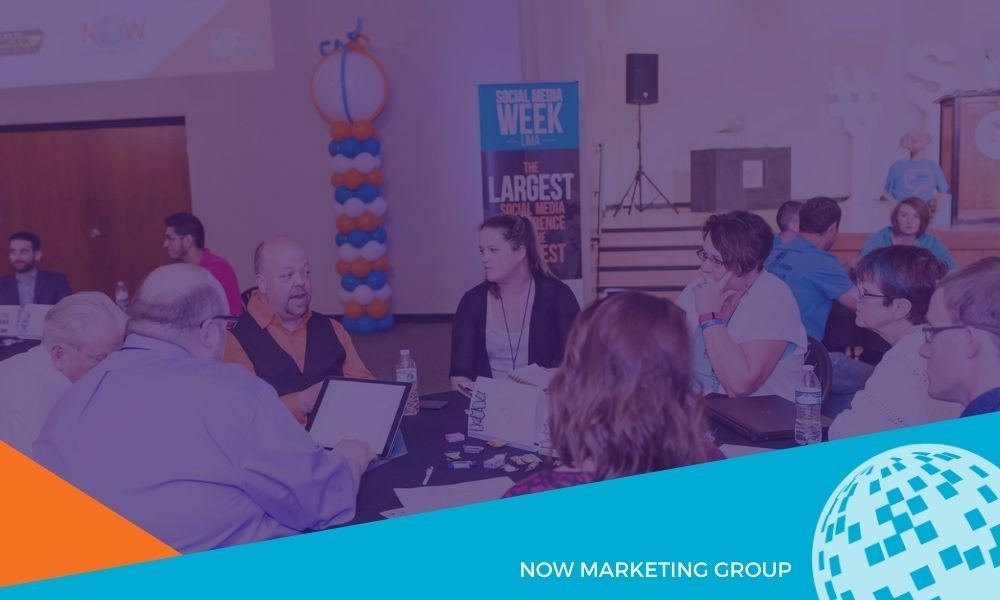
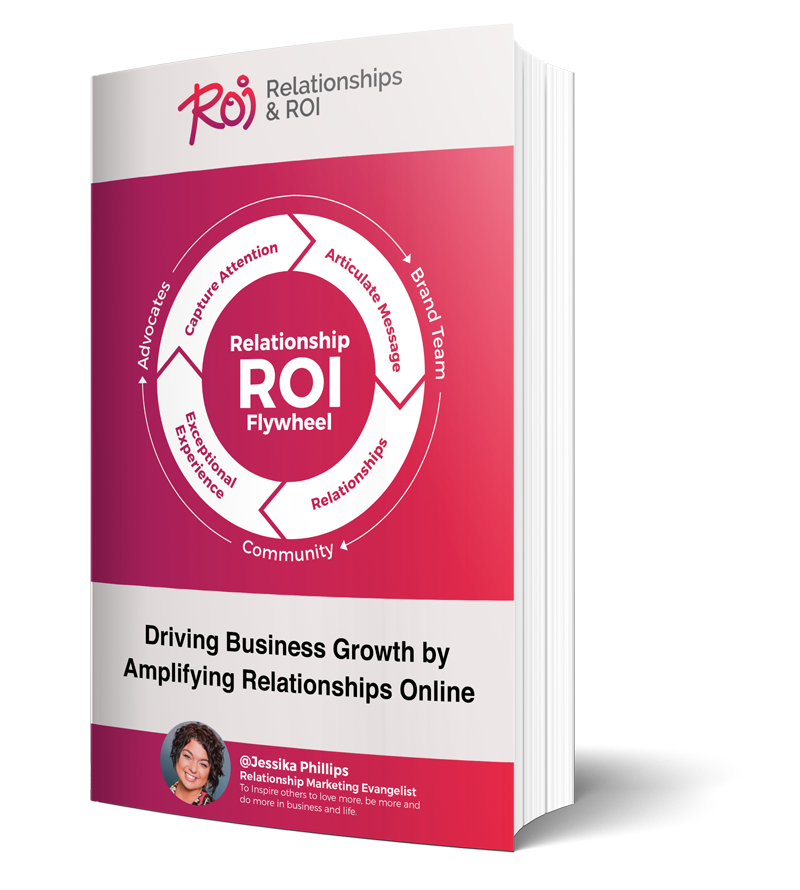
Comments